October
Figure Drawing
On Ocotber, 24th, figure drawing with a live model will once again take place in the “Fabric. Textile and the female Nude” exhibition at Villa Schöningen.
Under the guidance of artist Katrin Seifert, this opportunity is open to all art enthusiasts, regardless of your level of experience. The exhibition provides an inspiring backdrop for your figure drawings. No previous knowledge is required! Please bring your own drawing materials, such as sketch pads, pencils, and a sturdy surface (A3).
Please note that the number of participants is limited. To secure your spot in the figure drawing class, we recommend registering in advance by email at info@katrinseifert-art.de.
Registration HERE
THURSDAY, 24.10/ 6.15 – 8.15 pm
Costs: 19€
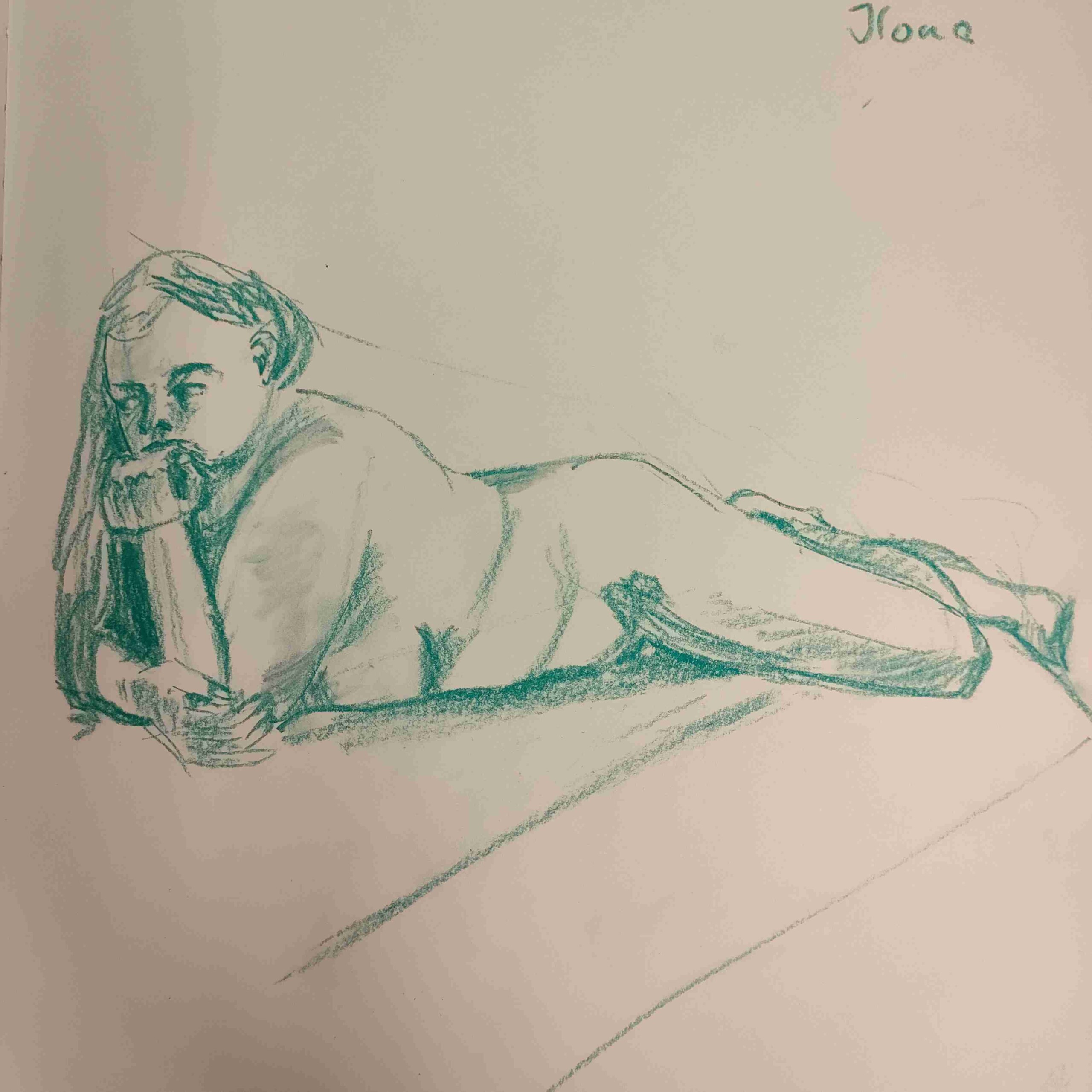
© Villa Schöningen, Foto: Katrin Seifert, 2023.
Salon
Our salon format invites you to a concert evening in the Villa Schöningen café. Experience the first Salon in winter 2024 at Villa Schöningen.
In addition, our exhibition “Stoff. Textile and the Female Nude” will be open exclusively for you for longer. Admission to the exhibition is included in the ticket price.
More information coming soon.
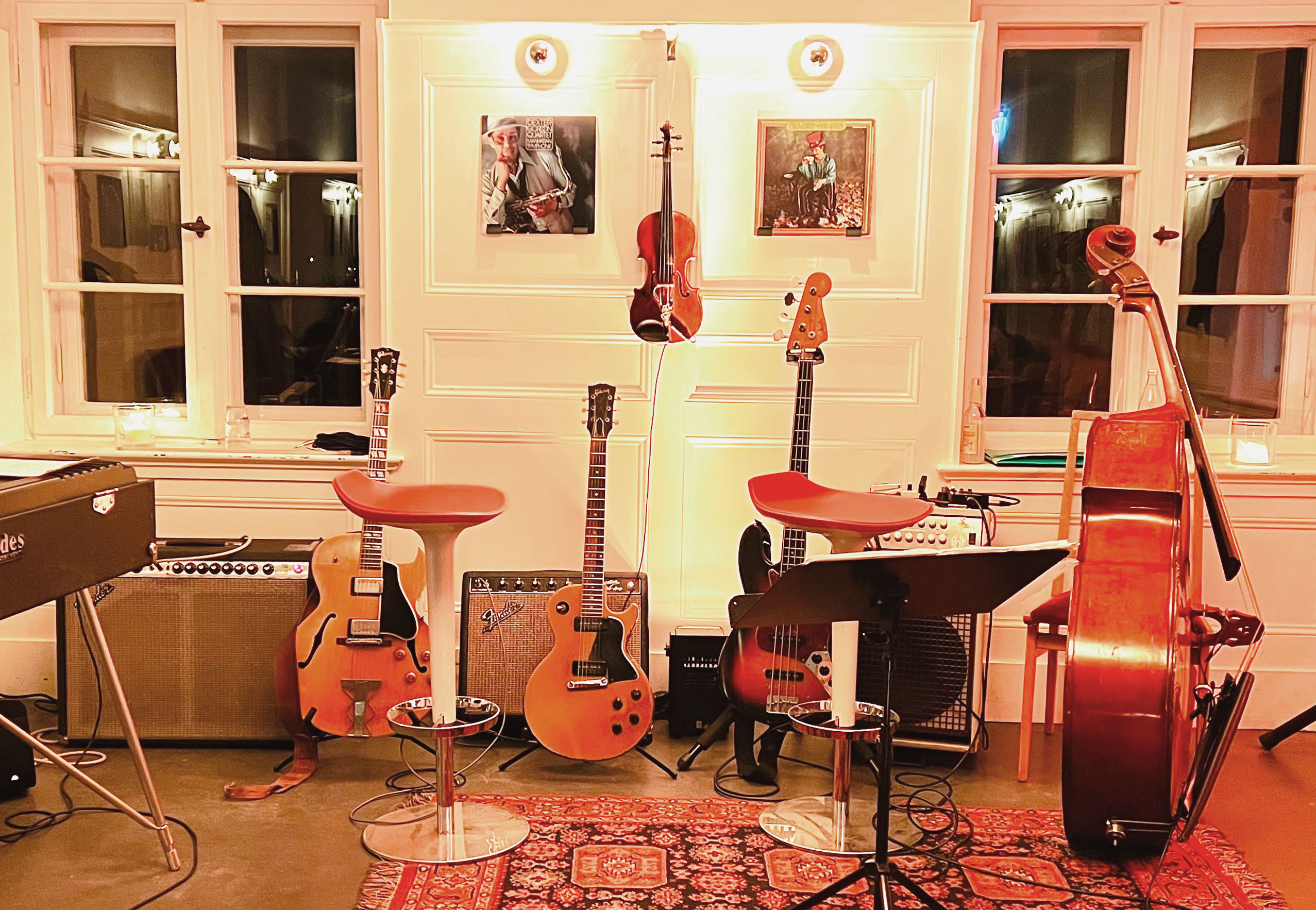
© Villa Schöningen
November
Villa Schlieffen
Villa Schlieffen will be open for tours again on Saturday, November 02, at 11 am. A wonderful opportunity to explore this historic site free of charge and learn more about its fascinating past.
The villa has been open to visitors again since 2023 and is presented in the condition in which it was left after the withdrawal of the Soviet military.
The impressive work “Sanctus” by Barbara Hammer, which is part of the Döpfner Collection, is also currently on display.
You are welcome to register for a free viewing via info@villa-schoeningen.de.
WHEN?
November 02, 11 am
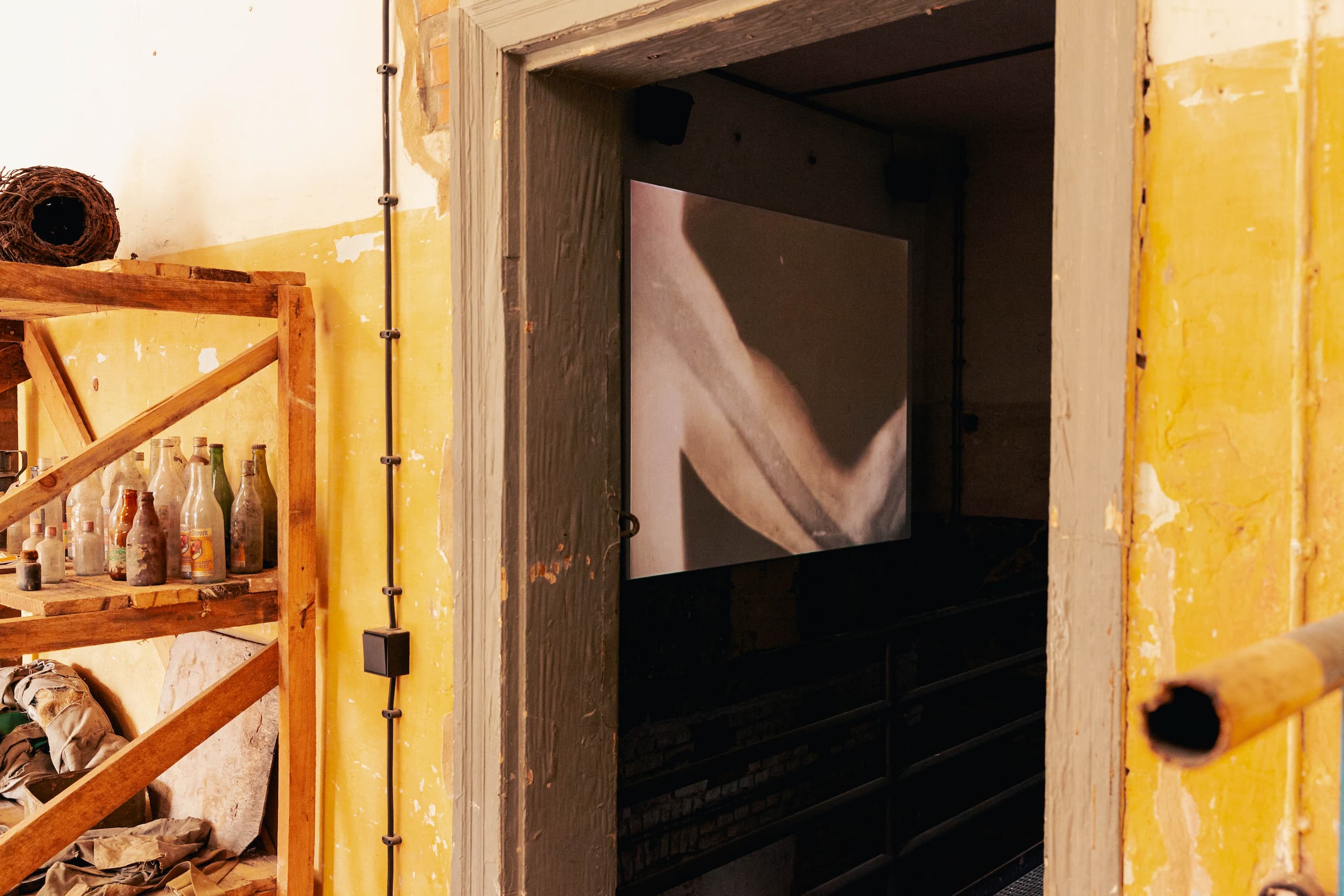
© Villa Schöningen, Foto: Aimee Shirley, 2024.
Historical guided tour
Historian Kerstin Zarbock offers a comprehensive tour of the history of Villa Schöningen, which played a key role in German-German history. Located directly on the former inner-German border, the villa was the scene of significant events, particularly in the context of the spy exchanges at Glienicke Bridge.
The tour focuses on the significance of the house during the GDR era and sheds light on how this place became a symbol of the Cold War.
The guided tour is part of the “Interventions on 35 Years of the Fall of the Wall” program of events. It combines artistic interventions with historical tours and focuses on the division of Germany and reunification. The focus is on Villa Schöningen, which played a central role as a former border location on the Glienicke Bridge. This bridge, once a symbol of division, is now a place of remembrance and reflection.
The emotional, political and cultural aspects of this historical milestone are illuminated through various formats and visitors are invited to immerse themselves both intellectually and emotionally in the subject matter.
When?
10.11.2024, 2 p.m.
Admission?
12€ / 10€ (admission to the exhibition included)
As the number of participants is limited, please register in advance at info@villa-schoeningen.de.

Agentenaustausch an der Glienicker Bruecke bei Berlin: Fahrzeugkonvoi, angeführt von einem westdeutschen Polizeiwagen, fährt von der Glienicker Brücke in den westlichen Teil der Stadt. Austausch mehrere Agenten, u.a. Anatoil Schtscharanski (Sharanky) © ullstein bild - Röhrbein
Talk Rainer Potratz and Dr. Peter Ulrich Weiß
After the end of the Second World War, the Cold War and the division of Germany ensured
West Berlin from Potsdam and the surrounding area of Brandenburg for almost 45 years.
and then hermetically sealed off. During this time, the SED regime
to erect an impassable, deadly border on the eastern side that prevented people from leaving the GDR.
people from leaving the GDR. With great effort, a control and surveillance system was
monitoring system was installed at great expense, which greatly changed the border
the affected border regions and their inhabitants.
How this border regime with West Berlin came about, what effects it had on people and the
environment and why it came to an end. Dr. Peter
Ulrich Weiß (LAkD) asks the expert and author Rainer Potratz, who has written a new book on the
border history in the former district of Potsdam.
The discussion will be preceded at 2 pm by a commemorative event to mark the 35th anniversary of the fall of the Berlin Wall.
anniversary of the fall of the Berlin Wall at Glienicke Bridge.
When?
10.11.2024, 3 pm
Entry?
Admission to the event is free.
The event is organized in cooperation with the Commissioner of the State of Brandenburg for
the consequences of the communist dictatorship and the Fördergemeinschaft
“Lindenstraße 54”.

Villa Schöningen an der Glienicker Brücke, 1843 für Kurd Baron von Schöningen, Hofmarschall des Prinzen Carl von Preussen, durch den Architekten Ludwig Persius errichtet - Juli 1995 © ullstein bild - Dietmar Horn
Talk Eric Meier and Judy Lübke
Eric Meier, an artist who himself experienced the fall of the Berlin Wall as an infant, reflects in his work on the profound social and familial changes brought about by this historic turning point. His installation “Spirit”, which will be shown in the stairwell of Villa Schöningen, deals with the spirit of the GDR and the after-effects that can still be felt today. In conversation, Meier will explain his artistic processes and discuss the inner-family dynamics triggered by reunification. Gallery owner Judy Lübke, who was already active as a creative artist in the GDR before the fall of the Wall, will provide insights into the art scene in the GDR and how it changed as a result of the fall of the Wall.
The talk is part of the event program “Interventions on 35 Years of the Fall of the Wall”. It combines artistic interventions with historical tours and focuses on the division of Germany and reunification. The focus is on Villa Schöningen, which played a central role as a former border location on the Glienicke Bridge. This bridge, once a symbol of division, is now a place of remembrance and reflection.
The emotional, political and cultural aspects of this historical milestone are illuminated through various formats and visitors are invited to immerse themselves both intellectually and emotionally in the topic.
When?
Friday, 15.11.2024, 7 pm
Admission?
12€ / 10€ (admission to the exhibition included)
As the number of participants is limited, please register in advance at info@villa-schoeningen.de.
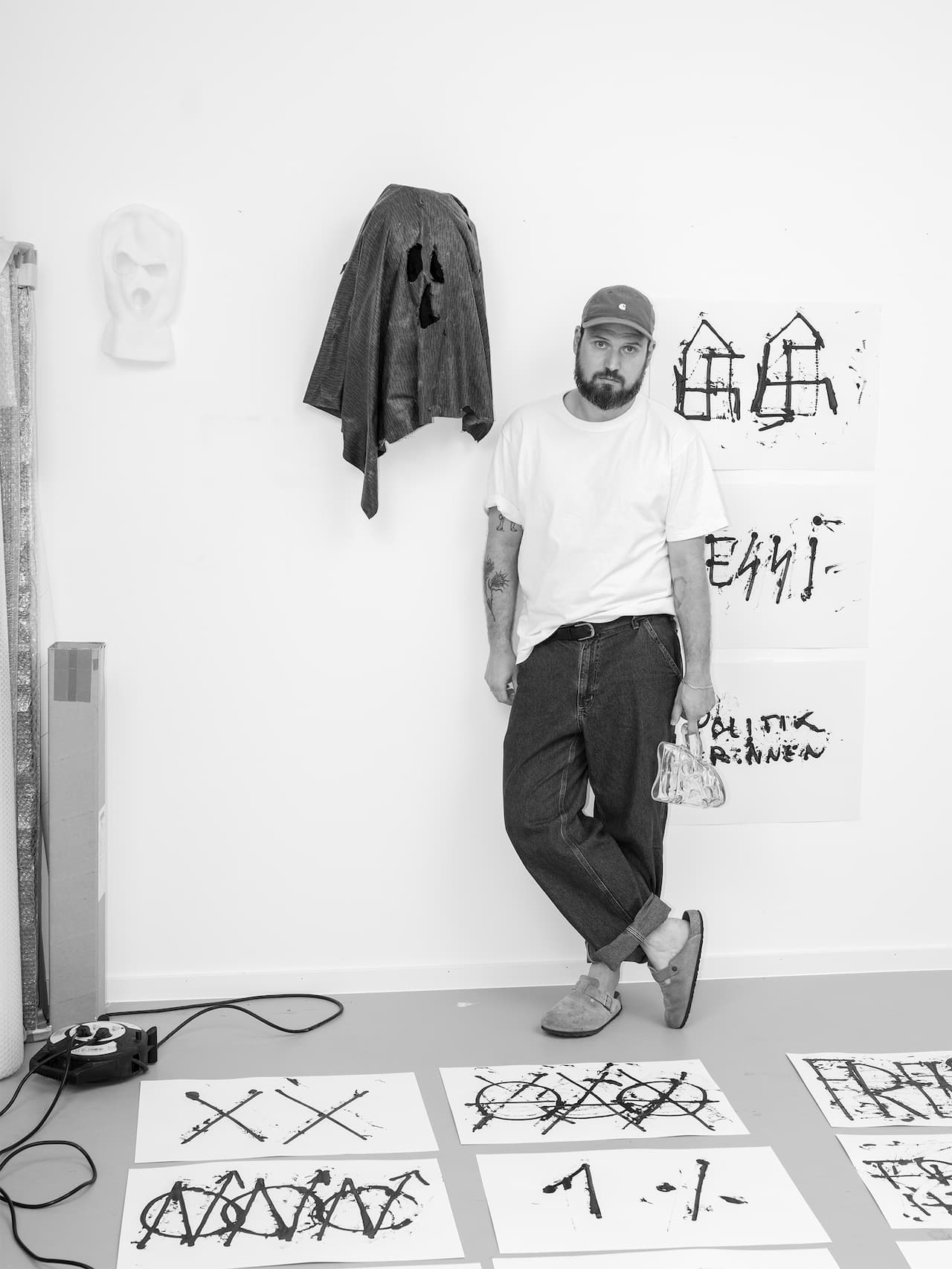
© Eric Meier.
Salon
Our Salon format invites you to a concert evening in the Villa Schöningen café. Experience the second Salon in winter 2024 at Villa Schöningen.
On this evening, the Jazz Quartet with Marlene Hoffmann, Tom Sehrer, HD Lorenz and Michael Gechter will give an energetic concert.
In addition, our exhibition “Stoff. Textile and the Female Nude” will be open exclusively for you for longer. Admission to the exhibition is included in the ticket price.

© Villa Schöningen
Talk Marie Jeschke and Dr. Jenny Linek
In her installation, contemporary artist Marie Jeschke explores the historical and emotional dimensions of the Glienicke Bridge as the former border between East and West Germany. With the help of an installation in the stairwell of Villa Schöningen, she artistically expresses the history of the fall of the Wall. Jeschke reflects on the symbolic and physical traces of the division and makes the border experiences geographically and emotionally comprehensible. In her work, she reconstructs water escape routes from the GDR, which remain on the canvases as traces of these moving stories.
Dr. Jenny Linek is a historian who deals intensively with the history of the GDR and refugee movements. In her current project, she is researching the often forgotten stories of GDR refugees who lost their lives while fleeing across the Baltic Sea.
In a joint conversation, Dr. Jenny Linek and Marie Jeschke will discuss their different perspectives on the GDR escape movements and the significance of borders. While Jeschke artistically depicts the historical and emotional dimensions of the Glienicke Bridge and the GDR’s water escape routes in her installation, Linek sheds light on the often forgotten stories of those who lost their lives while fleeing across the Baltic Sea. Her dialog combines art and historical research in order to keep the memories of the division and the dramatic escape attempts alive.
The talk is part of the event program “Interventions on 35 Years of the Fall of the Wall”. It combines artistic interventions with historical tours and focuses on the division of Germany and reunification. The focus is on Villa Schöningen, which played a central role as a former border location on the Glienicke Bridge. This bridge, once a symbol of division, is now a place of remembrance and reflection.
The emotional, political and cultural aspects of this historical milestone are illuminated through various formats and visitors are invited to immerse themselves both intellectually and emotionally in the topic.
When?
29.11.2024, 7 pm
Admission?
12€ / 10€ (admission to the exhibition included)
As the number of participants is limited, please register in advance at info@villa-schoeningen.de.
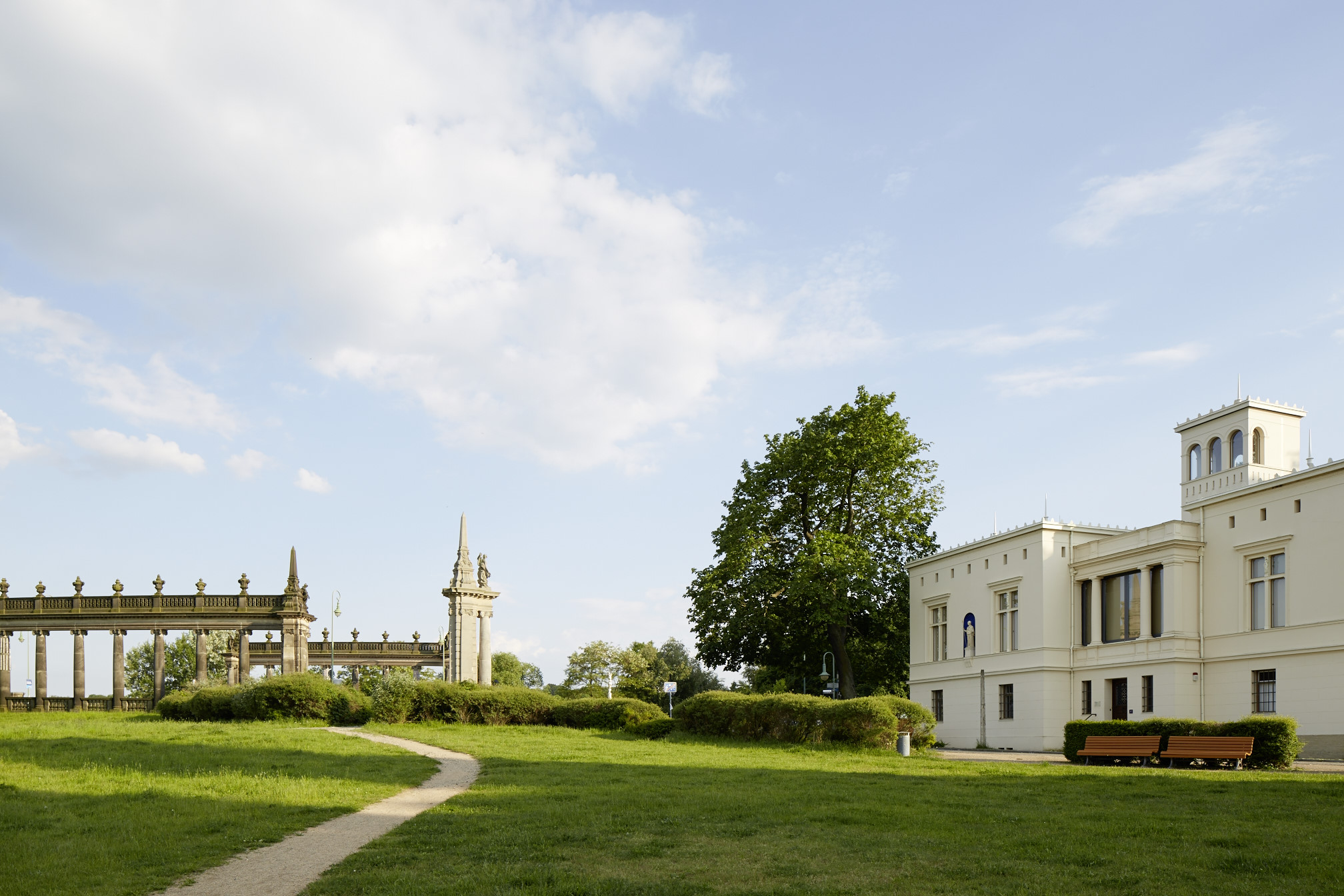
© Villa Schöningen, Foto: Noshe, 2023.
